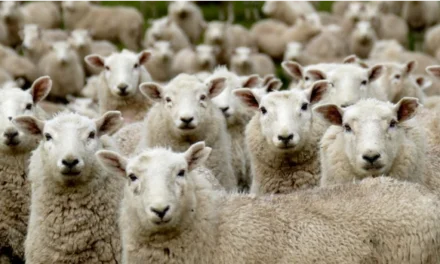Mushrooms are a popular food around the world, known for their unique flavor and health benefits. However, there has been some debate among Muslims about whether mushrooms are halal or haram to eat. This article will take a comprehensive look at mushrooms through the lens of Islamic law to determine if they are permissible for consumption.
Eating only halal foods is an important part of practicing Islam. In the Quran, Allah commands Muslims to eat good and permissible foods. Therefore, it is essential for Muslims to educate themselves on what foods are allowed so they can follow the principles of their faith. This article will analyze the different Islamic opinions on mushrooms to provide clarity for Muslims who want to make sure they are adhering to dietary restrictions properly.
What Does Halal Mean in Islam?
Halal is an Arabic word that means “permissible” or “lawful” in Islam. Halal foods are those that are allowed for Muslims to consume under Islamic dietary guidelines. The criteria for halal foods are derived from directives found in the Quran and the teachings of Prophet Muhammad (PBUH).
The opposite of halal is haram, meaning “prohibited” or “unlawful.” There are some clearcut foods and drinks that are always haram, such as pork, alcohol, meat that was not slaughtered according to Islamic procedure, and foods contaminated with anything impure. However, there are many foods that are not as straightforward when it comes to halal rulings. This is where scholarly debate and interpretation comes in.
Are Mushrooms Vegetables, Fungi, or Something Else in Islamic Law?
The first question to address is how mushrooms are classified in Islamic jurisprudence, as food classifications dictate the rules that apply to them. Mushrooms are not easily identified as either a plant or an animal. They resemble plants but do not photosynthesize and absorb nutrients as plants do. At the same time, they do not have sensory organs like animals.
Among Islamic scholars, there are a few opinions on the nature and classification of mushrooms:
- Mushrooms are a fungi, not a plant or an animal. Therefore, the rules related to plants or animals do not necessarily apply to them.
- Mushrooms are a type of “manna” mentioned in the Quran, a food Allah provided to the Israelites in the desert. Scholars differ on whether manna would be halal or haram.
- Mushrooms are considered a form of plant life and vegetation, and rules about plants would apply to them.
- Mushrooms are classified as a unique creation, so rules about plants, animals, and fungi do not necessarily dictate their permissibility.
This spectrum of classifications means there are also different rulings on the halal status of mushrooms.
Evidence That Mushrooms are Halal to Eat
There is evidence from Quranic verses, hadiths, and scholarly opinions that support the permissibility of eating mushrooms:
- The Quran mentions “all good and pure things” as halal. Mushrooms contain nutrients and have health benefits, so they can be considered tayyiban (good, pure).
- The famous Hanafi scholar Ibn Abidin states mushrooms grown on wood are halal to eat.
- The prominent hadith scholar Ibn Hajar al-Asqalani mentions a hadith where Prophet Muhammad (PBUH) indirectly affirmed mushrooms are halal by comparing them to manna.
- Some scholars classify mushrooms as a type of plant or vegetation, which are permissible to eat as per the Quran verse: “And the grazing livestock He has created for you; in them is warmth and [numerous] benefits, and from them you eat.”
- The Hanafi school founder Imam Abu Hanifa is documented saying only intoxicants are prohibited, not plants/vegetation like mushrooms.
Based on such evidence, many contemporary Islamic authorities state mushrooms are halal. But there are still some dissenting opinions.
Scholarly Opinions That Prohibit Mushrooms
On the other side of the debate, some traditional and contemporary scholars prohibit mushrooms entirely or consider them questionable to eat:
- Mushrooms resemble truffles and truffles are haram according to the Hanafi and Maliki schools of Islamic law. So mushrooms are also not permissible by analogy.
- The 8th century scholar Ibn Abi Zayd al-Qayrawani prohibited mushrooms because they grow without “cultivation” naturally from the earth, unlike plants.
- Some modern scholars say edible mushrooms should be avoided because they bear resemblance to poisonous mushrooms. Consuming something hazardous or doubtful is not recommended in Islam.
- Mushrooms grown on substrates containing animal manure or other impure substances would be regarded as impure and haram.
Additionally, from a medical perspective, some scholars point out that mushrooms can cause allergic reactions or other harmful effects for some people. Therefore, they should be avoided out of precaution.
Are All Mushrooms Equal in Halal Status?
Looking at the evidence holistically, a moderate assessment is that mushrooms are permissible (halal) to eat in principle, but there are some caveats:
- The mushroom species makes a difference. Mushrooms known to be poisonous or hazardous are haram. Common edible mushroom varieties that are not harmful are more likely to be halal.
- Where and how the mushrooms are grown affects their halal status. Mushrooms take on the ruling of the substance they grow on. So those growing on wood or plant-based compost are more likely to be halal than mushrooms grown on animal manure or other impure substrates.
- Mushrooms that contain or are cooked with any haram ingredients would be prohibited, according to the Quranic principle of not eating haram foods.
- Muslims who want to avoid mushrooms due to doubts may refrain, as the Quran says “He who has forbidden the doubtful things, certainly His is the safe side.” But mushrooms are generally permitted according to many scholars.
The differences of scholarly opinion show that there is room for various valid interpretations on this issue. Muslims are encouraged to analyze the evidence and make a personal judgment based on their conscience and faith.
Is Mushroom Halal – FAQ What is the status of mushroom in Islam?
Mushroom is considered halal in Islam.
Is there any evidence from the Quran and Hadith regarding the permissibility of eating mushroom?
There is no specific mention of mushroom in the Quran or Hadith, but it falls under the category of vegetation and is therefore permissible to eat.
Can mushroom be considered haram in Islam?
No, mushroom is not considered haram in Islam unless it is proven to be poisonous or intoxicant.
Are there any specific rulings from Islamic scholars on the permissibility of mushroom?
The majority of Islamic scholars consider mushroom to be halal to eat. However, there may be differences of opinion among scholars from different schools of thought.
Can you provide any references from the Hadith regarding mushroom?
There is a narration from Sayyiduna Sa’id Ibn Zayd that states: “Mushroom is from the al-manna’ (the sustenance provided by Allah for Bani Isra’il during their journey in the desert).”
Is there any information from the Prophet Muhammad (pbuh) regarding mushroom?
There is no specific statement from the Prophet Muhammad (pbuh) regarding mushroom, but it is considered permissible to eat based on the general principles of Islamic dietary laws.
Are there any specific guidelines on consuming wild mushrooms?
It is recommended to exercise caution when consuming wild mushrooms, as some species can be poisonous. It is safer to consume commercially cultivated mushrooms.
What is the significance of mushroom in the Islamic perspective?
Mushroom is considered a gift from Allah and a type of vegetable that is nutritious and beneficial for the body.
Does the Hanafi school of thought have any specific rulings on mushroom?
The Hanafi school of thought considers mushroom to be halal to eat.
Is there any evidence from Sahih al-Bukhari regarding mushroom?
There is no specific mention of mushroom in Sahih al-Bukhari, but the Prophet Muhammad emphasized the general principle that all vegetation is permissible to eat, unless proven otherwise.
Conclusion
- Mushrooms have ambiguous classifications according to Islamic schools of jurisprudence. They have traits of plants, fungi, and unique creations.
- There are reasonable arguments among scholars for both allowing and prohibiting mushrooms. Muslims should study these carefully.
- Common edible mushroom types that are not poisonous or contaminated are likely halal to eat, according to many contemporary scholars. But there are dissenting opinions.
- Mushrooms grown in a pure environment are more likely to be halal than those grown on potentially impure substances.
- Muslims should evaluate the different evidence based on the Quran and Sunnah and decide if they feel comfortable consuming mushrooms or not.
The permissibility of mushrooms is not definitively settled in Islamic law. But the mainstream position considers common, edible mushrooms to be permissible based on the principles of Islamic dietary rules. Muslims should analyze the available information to make an informed decision aligned with their faith and conscience. While differences of opinion remain, increased awareness and dialogue can help ensure Muslims only consume foods that are aligned with the values of compassion, moderation, and purity in Islam.





